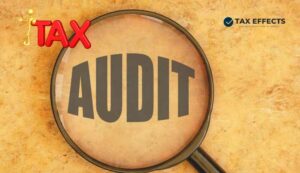Earlier, Provisions relating to the residential status of a company were providing that a company is said to be resident when the company is an Indian Company or during the previous year the Control and Management of the company was situated WHOLLY in India.
Now, To avoid the taxes companies were manipulating the residential status by holding a few Board meeting outside India and saying that we are a non-resident company. This was resulting in a reduction in the tax base of Govt.
Therefore, the Govt. by Finance Act, 2015 introduced the concept of Place of Effective Management (POEM) which replaced the old Control and Management Concept.
But, because there was not enough clarity on the term PLACE OF EFFECTIVE MANAGEMENT the applicability of this concept was later on postponed by Finance Act, 2016 and said that this concept would apply from Assessment Year 2017-18 and onward years.
Thereafter, the CBDT, later on, issued very detailed principles for determination of POEM through Circular no. 6/2017 dated 24-01-2017. And that is what called POEM guidelines or POEM rules.
So, let’s understand them in detail:
1. Residential Status of Company [Section 6(3)]:
As per the amended provisions of section 6 (3) of the Income Tax Act, the company qualifies as a resident of India in any previous years, if –
(i) It is an Indian Company, or
(ii) Its Place of Effective Management (POEM) in that year is in India.
2. Place of Effective Management (POEM):
Section 6(3) also defined POEM “a place where key management and commercial decisions that are necessary for the conduct of the business of an entity as a whole are, in substance (actually) made. But this was unclear so wait for the circular to save this.
3. Determination of POEM [Circular no 6/2017 dt. 24-01-2017]:
For determination of POEM we could divide the type of companies into Two:
(I) Companies Which are involved in Active Business Outside India (ABOI)
(II) Companies Which are NOT involved in ABOI
Now, we will discuss both the above points in detail in separate points given below.
4. Companies Which are involved in ABOI:
The Company is said to be involved in Active Business Outside India (ABOI) if it fulfills ALL the 4 conditions given as follow:
(i) “Passive Income” of the company is max. up to 50% of its total income;
(+)
(ii) Out of the Total Assets of the company; less than 50% (i.e. up to 49%) assets are situated in India,
(+)
(iii) Out of the Total No. of Employees of the company; less than 50% of employees are situated/resident in India;
(+)
(iv) Out of the Total Payroll Expenses incurred by the company; less than 50% of payroll exp. is incurred for such employee.
If all the above condition is fulfilled then the company is said to be having Active Business Outside India (ABOI).
Now, before heading for determining the POEM of such companies (which are having ABOI) we need to understand the terms used in the above conditions.
(a). Passive Income: It means the Aggregate of following two types of incomes:
– Income from the transactions, wherein, purchase and sale both are from an associated enterprise of the company, and
– Income from royalty, dividend, capital gains, interest or rental income.
(b). Income: means Income As Computed for Tax Purpose; or
If there is No computation available for tax purposes; then Income As Per Books of Accounts.
Note- Both the Above incomes (as per books/tax computation) shall be taken as per law of THAT COUNTRY WHERE THE COMPANY IS INCORPORATED.
(c). Value of Assets:
In case of Individually Depreciable Assets (i.e. Single Assets System): Value shall be “Average of Opening Value & Closing Value” for tax purposes calculated at the end of the Previous Year.
In the case of Block-Wise Depreciable Assets: Value shall be “Average of Opening Value & Closing Value of Block” for tax purposes calculated at the end of the Previous Year.
In any other cases: Value shall be As per Books of Accounts.
Note- All the Opening/Closing Balance of Assets or Books Value of Assets shall be taken as per law of THAT COUNTRY WHERE THE COMPANY IS INCORPORATED.
(d). Number of Employees: It means “Average of Opening No. of Employees & Closing No. of Employees” and it would include the persons who were not directly employed by Company but perform the similar task to those of employees of the company (i.e. Outsource Employees).
(e). Payroll Expense: Payroll includes the cost of salaries, wages, bonus and all other employee compensation including related pension and social cost borne by the employer.
IMPORTANT NOTE- For Calculation of Any of the above said AVERAGES the data of [Current Previous Year + 2 Preceding P.Y.] shall be considered.
What is the POEM of Companies which has ABOI?
The POEM of the companies which has Active Business Outside India (ABOI) shall be deemed to be OUTSIDE INDIA and consequently, it would be non-resident if the majority of Board meetings are held outside India.
But, if the majority of the meetings are held in India and consequently key decisions are taken in India then POEM shall fall in India.
However, if through the facts and circumstances it is established that BOD is standing aside (just a puppet) and instead any Indian Holding co./ Indian Resident is exercising the powers then POEM shall be considered in India.
5. Companies Which are NOT involved in ABOI:
The determination of POEM of the companies which are NOT involved in the ABOI shall depend on two stages:
(i) First Stage is to Identify those PERSONS who are Actually taking key management and commercial decisions;
(ii) Second Stage is to Identify the PLACE where these decisions are actually being taken from. The place where the decisions are being taken would always be of more importance rather than the place where such decisions are being implemented.
Now, the PERSONS and PLACE as mentioned in the first and second stage would impact the Place of Effective Management.
To determine those impact and the actual POEM; some of GUIDING PRINCIPLES has been mentioned which are as follows:
(A). Location of BOD meets: The location where company’s board regularly meet and makes decisions may be the company’s POEM if: The BOD has actually exercised its authority to govern the company and taken key management decisions for the company. [Crux it that the BOD is not standing aside but actually acting for the company].
(B). Executive committee: If the board has delegated its power to any Executive Committee then the origin places of the Members of such committee and where the committee takes decisions both shall be considered for POEM.
(C). Location of Head Office: The location of the head office of the company shall be a very important factor for determining the POEM.
(D). Location of Key Management Persons: In case meetings are held through modern technologies e.g. Video Conferencing, Skype etc. without the person being physically present then in such case the Place where Key Management Persons resides shall be considered for POEM.
(E). Circular Resolutions: In case decisions are being taken by circular resolutions, then the location of Persons who has the authority to pass the circular resolution shall be considered for determination of POEM.
(F). Location of Shareholders: Generally decisions taken by the shareholder are determinative for the existence of the company (e.g. mergers, liquidation etc.) and therefore these do not affect the POEM. But there might be some cases when the shareholders might affect the POEM e.g. Shareholders through a shareholder’s agreement takes indirectly the management of the company then in such case Location of shareholders would also become relevant for determination of POEM.
NOTE- If the above factors (given under point 5) do not lead to the clear identification of POEM then following secondary factors can be considered:
(I) Place where MAIN AND SUBSTANTIAL ACTIVITY of the company is being carried out. ; OR
(II) Place where the ACCOUNTING RECORDS are kept.
6. Some Important Points:
(i) It might be important to clarify that day to day routine operational decisions undertaken by junior and middle management shall not be relevant for the purpose of determination of POEM.
(ii) For determination of POEM any All relevant facts would be seen and POEM shall not be decided on any single or few facts.
(iii) All the above principles to determine POEM are only for Guiding Purpose and it would not be considered decisive and exclusive.
(iv) The POEM rules would be seen only for those companies which have turnover/gross receipts EXCEEDING RS. 50 CRORE during the relevant P.Y.









